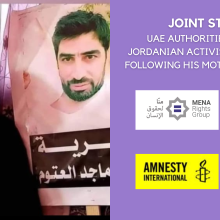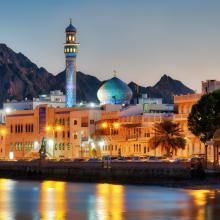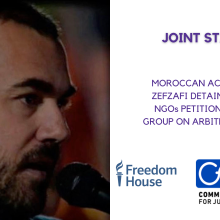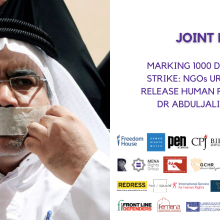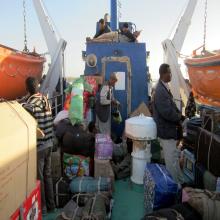10 سبتمبر 2021
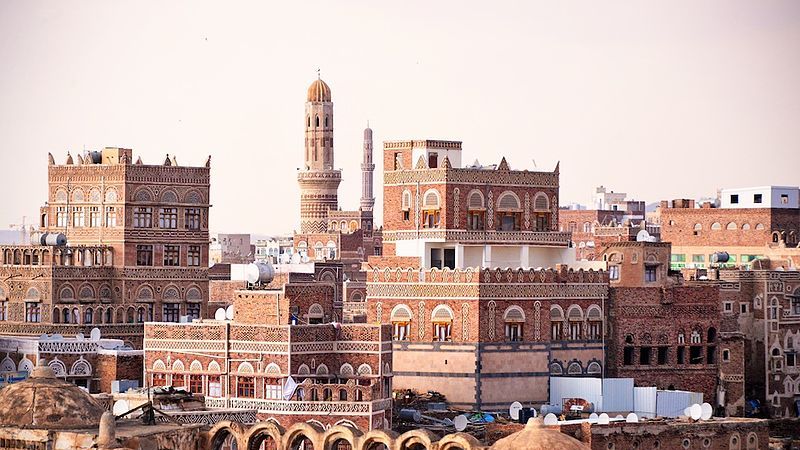
Sana'a, Yemen © Rod Waddington, licensed under CC BY-SA 2.0
September 2, 2021
Heads of State and Senior Government Officials:
Prime Minister of Australia Scott Morrison, Minister for Foreign Affairs and Minister for Women Marise Payne, Australia Ambassador to UAE Heidi Venamore
Prime Minister of Belgium Alexander De Croo, Minister of Foreign Affairs Sophie Wilmés, Ambassador to UAE Peter Claes
President of Brazil Jair Bolsonaro, Minister of Foreign Affairs Carlos Alberto França, Ambassador to UAE Fernando Igreja
Prime Minister of Canada Justin Trudeau, Minister of Foreign Affairs Marc Garneau, Ambassador to UAE Marcy Grossman
Prime Minister of Finland Sanna Marin, Minister for Foreign Affairs Pekka Haavisto, Ambassador to UAE Marianne Nissilä
President of France Emmanuel Macron, Minister for Europe and Foreign Affaris Jean-Yves Le Drian, Ambassador to UAE Xavier Chatel
Chancellor of Germany Angela Merkel, Minister of Foreign Affairs Heiko Maas, Germany Ambassador to UAE Peter Fischer
President of Italy Sergio Mattarell, Foreign Minister Luigi Di Maio, Ambassador to UAE Nicola Lener
Prime Minister of Luxembourg Xavier Bettel, Minister of Europe and Foreign Affairs Jean Asselborn, Ambassador to UAE Elisabeth Cardoso
Prime Minister of the Netherlands Mark Rutte, Minister of Foreign Affairs Sigrid Kaag, Ambassador to UAE Hans Sandee
Prime Minister of New Zealand Jacinda Ardern, Minister of Foreign Affairs Nanaia Mahuta, Ambassador to UAE Matthew Hawkins
Prime Minister of Norway Erna Solberg, Minister for Foreign Affairs Ine Marie Eriksen Soreide, Ambassador to UAE Sten Arne Rosnes
Prime Minister of Spain Pedro Sánchez, Minister of Foreign Affairs, European Union and Cooperation Jose Manuel Albares, Ambassador to UAE Antonio Alvarez Barthe
Prime Minister of Sweden Stefan Löfven, Minister for Foreign Affairs Ann Linde, Ambassador to UAE Henrik Landerholm, Ambassador and Commissioner General of the Expo 2020 Jan Thesleff
President of Switzerland Guy Parmelin, Head of Federal Department of Foreign Affairs Ignazio Cassis, Ambassador to UAE Massimo Baggi
Prime Minister of the United Kingdom Boris Johnson, Secretary of State for Foreign and Commonwewalth Affairs Dominic Raab, U.K. Ambassador to UAE Patrick Moody
President of the United States of America Joe Biden, Secretary of State Antony Blinken, Chargé d’Affaires Sean Murphy
Senior Corporate Executives:
Accenture CEO Julie Sweet
Canon CEO Fujio Mitarai
Canon USA CEO Kazuto Ogawa
Christie CEO Kazuhisa Kamiyama
Dominos CEO Richard E. Allison Jr.
Jacobs CEO Steven J Demetriou
Loreal CEO Nicolas Hieronimus
Mace CEO Mark Reynolds and Executive Chairman Stephen Pycroft
Mastercard CEO Michael Miebach
Nissan CEO Makoto Uchida
PepsiCo CEO Ramon Laguarta, CEO of PepsiCo
SAP CEO Christian Klein
Siemens CEO Roland Busch
UPS CEO Carol Tomé
Dear Heads of State, Ministers of Foreign Affairs, Ambassadors, Senior Diplomats, and Business Leaders,
We are deeply concerned by your participation in the UAE Dubai Expo, beginning this October 2021. The monarchy of the United Arab Emirates, together with the rulers of Saudi Arabia, have committed horrific human rights violations in Yemen, where they have caused vast levels of suffering for millions of Yemeni civilians.
The UAE and Saudi governments use high publicity propaganda events, like this October’s UAE Dubai Expo and Saudi Future Investment Initiative, to attract investment and build political clout despite their brutal human rights records. This is why we urge you to 1) end your participation at the UAE’s Dubai Expo, 2) pledge not to participate in Saudi Arabia’s Future Investment Initiative, and 3) publicly demand that both the UAE and Saudi Arabia stop violating human rights in Yemen and pay reparations to the millions of Yemenis who have suffered under the Saudi- and UAE-led war.
The Saudi Arabian and UAE monarchies are profoundly hypocritical for hosting propaganda events that boast of “opportunity, mobility, and sustainability” and that claim to address “global challenges,” while they are simultaneously responsible for killing tens of thousands of innocent civilians through their ongoing war and blockade of Yemen. Despite ostensibly drawing down its troop presence in Yemen in 2019, the UAE continues to militarily and financially support tens of thousands of proxy forces and mercenaries, torture prisoners at secret detention facilities across Yemen, destroy vital civilian infrastructure, impede the delivery of humanitarian aid, occupy islands off of Yemen’s coast, and annex vital Yemeni territory.
By withdrawing from the UAE Dubai Expo and pledging not to attend the Saudi Arabian Future Investment Initiative, you could help bring about an end to the world’s largest humanitarian crisis. As a result of the Saudi and UAE-led war effort, there are now 16.2 million Yemenis living on the brink of famine. Yemen is also tragically considered the worst place in the world to be a child, with 2.3 million children under five suffering from acute malnutrition. According to the World Food Programme, 400,000 of those children suffer from severe acute malnutrition and could die in the coming weeks and months without urgent treatment. The recent fuel shortages, triggered by the Saudi/UAE-led coalition’s blockade on Yemen, are quickly accelerating major reductions in access to affordable food, clean water, electricity, as well as impeding basic movement across Yemen. This blockade also threatens to shut down hospitals reliant on power generators to tend to victims of famine, while making even emergency travel to hospitals prohibitively expensive for Yemeni families, condemning untold numbers of children to death.
In 2020, Human Rights Watch reported that the UAE has played a major role in the coalition’s war and blockade on Yemen, having committed “over 30 fighter jets to carry out airstrikes and naval ships to enforce the coalition’s maritime blockade.” After over six years of military intervention, the Saudi/UAE-led coalition has conducted tens of thousands of airstrikes on Yemen, killing tens of thousands of civilians and devastating critical economic and agricultural infrastructure. In a country that depends on imports for roughly 90% of its food supply, the coalition’s deliberate targeting of Yemen’s agricultural and economic infrastructure, on top of enforcing its blockade, have helped create conditions that could trigger what the UN warns could be the “biggest famine in modern history.”
We call on you to withdraw from the UAE Dubai Expo, pledge not to participate in Saudi Arabia’s so-called Future Investment Initiative, and publicly demand that the monarchies that rule the United Arab Emirates and Saudi Arabia take the following steps to end their destructive roles in Yemen:
- The UAE and Saudi Arabia must end their wars, interventions, and blockade on Yemen and immediately dissolve the Saudi -led coalition.
- The UAE and Saudi Arabia must pay full reparations to all families impacted by their military participation in the Saudi/UAE-led war and blockade on Yemen.
- The UAE and Saudi Arabia must fund the rebuilding of Yemen’s infrastructure destroyed by the Saudi/UAE-led war on Yemen, including all ports of entry, markets, hospitals, schools, agricultural and economic infrastructure, sewage systems, roads, and bridges.
- The UAE and Saudi Arabia must dramatically increase their annual humanitarian funding for UN-led relief efforts in Yemen, based on Oxfam’s fair share assessment figures.
- The UAE and Saudi Arabia must end its military and financial support for all militias and other military forces in Yemen, including but not limited to, the separatist Southern Transitional Council (STC), military forces along the South and West coast of the country, and Al Qaeda in the Arabian Peninsula (AQAP) in Yemen.
- The UAE and Saudi Arabia must end their occupation and annexation plans of all parts of Yemen, including Perim and Socotra islands, Aden and Riyan International Airports, and Yemen’s eastern province al-Mahra.
Below are some of the ways that the UAE and Saudi Arabia violate international human rights laws and fuel the war in Yemen:
Killing and Starving Yemeni Civilians:
The UAE and Saudi Arabia have a long track record of activity that has led to civilian deaths throughout the course of the Yemen war. According to the Yemen Data Project, the Saudi/UAE-led coalition has conducted nearly 60,000 airstrikes in over 20,000 air raids since March 2015. These airstrikes have killed and injured tens of thousands of innocent civilians and have dramatically exacerbated the humanitarian crisis by destroying vital civilian infrastructure, including hospitals, schools, weddings, farms, food stores, school buses, markets, mosques, bridges, civilian factories, detention centers, and water wells.
Saudi Arabia and the UAE have enforced their air and sea blockade on Yemen since 2015, which has restricted the flow of vital commercial and humanitarian goods into a country that depends on imports of food, fuel and medicine. These restrictions have been a leading driver of the humanitarian crisis in Yemen, where hundreds of thousands of children are at risk of dying of malnutrition this year as the country is pushed closer toward large scale famine. Since January 2021, coalition forces have tightened restrictions on fuel imports, hindering food shipments and hospitals’ ability to function. These restrictions have pushed the prices of goods out of reach for millions of Yemenis and greatly deepened the humanitarian crisis.
Destroying Yemen’s Economy:
Yemen was already the poorest country in the Middle East before the war, but since the 2014 coup and the ensuing Saudi/UAE-led coalition military intervention that began in March 2015, Yemen has experienced unprecedented losses to its economy and economic infrastructure. According to the Yemeni Ministry of Planning, Yemen saw approximately 45% of its GDP evaporate by the end of 2019, and these figures have only gotten worse as COVID-19 and continued fighting has gripped the country. Yemen’s economic crisis is a result of a confluence of factors, but was gravely worsened by the Saudi/UAE-backed Yemeni government’s decision to move Yemen’s central bank to the south of the country in September 2016. This has led to extreme inflation and restrictions on foreign currency reserves, impeding the financing of imports; ultimately hiking the cost of importing and the price of purchasing basic goods that millions of Yemenis rely on for survival.
Meanwhile, Saudi/UAE-led coalition’s airstrikes account for at least 67 percent of the attacks on agricultural infrastructure since the start of the war. These attacks have devastated farms, livestock, grain stores, fishing boats, and houses, and nearly all have resulted in direct civilian deaths. Yemen’s sanitation and healthcare infrastructure has also been decimated as a direct result of coalition airstrikes and ongoing conflict, with roughly 50% of health facilities offline.The World Bank reported in 2021, that roughly 20.5 million Yemenis now lack access to clean water and sanitation and nearly 20 million don’t receive adequate healthcare. Yemen also grapples with mass outbreaks of preventable diseases, such as cholera, diphtheria, measles, and Dengue Fever. In August 2019, Doctors Without Borders claimed that airstrikes hit at least five of their healthcare facilities, despite having provided their precise locations to the Saudi/UAE-led coalition, leaving many to speculate if these attacks were deliberate.
Arming and Training Mercenary Groups in Yemen:
Despite its claims to the contrary, the UAE continues to play a significant role in the brutal war in Yemen, by arming, funding, training, and providing logistical support to tens of thousands of proxy forces. According to a 2021 report by the Center for International Policy, these UAE-backed mercenaries are complicit in severe violations of human rights, “ranging from indiscriminate artillery shelling to torture to recruitment of child soldiers.” Some of the mercenary groups for which the UAE provides “financial and military support” include the Security Belt Forces and the Shabwani Elite Forces and the Amaliqah Brigades, the Guards of the Republic and the Tihamah Brigades, who are on the frontlines against the Houthis.
Saudi Arabia and the United Arab Emirates both have a disturbing track record of using US-made arms to buy the loyalties of Yemeni tribes and militia forces, even if these individuals are closely affiliated with extremist groups, like Al Qaeda Arabian in the Peninsula (AQAP). For example, in 2019 CNN reported, “One of those militias linked to AQAP, the Abu Abbas brigade, now possesses US-made Oshkosh armored vehicles, paraded in a 2015 show of force through the city. Abu Abbas, the founder, was declared a terrorist by the US in 2017, but the group still enjoys support from the Saudi coalition and was absorbed into the coalition-supported 35th Brigade of the Yemeni army.”
Moreover, the AP has documented that the Saudi-led coalition actively tries to recruit Al Qaeda militants, because of their battle readiness and exceptional fighting skills. As such, coalition forces fighting the Houthis in Yemen are made up of a troubling mix of AQAP militants, local and foreign militia fighters, and tribal warlords, helping to perpetuate even more violence and instability in war torn Yemen.
Occupying and Annexing Yemen:
As the peace process has dragged out, both the UAE and Saudi Arabia have staked out control over key territory in Yemen. The UAE now occupies many parts of Yemen along the South and West Coasts, including several international airports. In May 2021, the UAE began constructing an illegal air base on Mayun Island in the Bab al-Mandab Strait, which would allow the Emiratis a strategic location to wage more air warfare in Yemen. The UAE also occupies Yemen’s Socotra Island, putting at risk protected wildlife habitats and nature reserves.
The UAE monarchy has also begun to financially profit off of its occupation of these resource rich Yemeni Islands, where it’s reported that UAE businessmen are now constructing luxury resorts for international tourists. According to Yemenis in Socotra Island, “parts of the island – 70 percent of which is protected land – have already been bulldozed in preparation for building hotels, pools and other tourist infrastructure for coming Emiratis.”
In 2017, the Saudis began taking greater control of al-Mahra with the hopes of giving Riyadh direct access to the Indian Ocean, as they seek to build an oil pipeline from its eastern province. Saudi Arabia now has 20 bases in al-Mahra, and a troop presence in the capital al-Ghaydah, the seaport, and outposts along Yemen’s border with Oman. According to Human Rights Watch, Saudi Arabia and local tribes allied with the Kingdom have used coercive measures, including the use of military force, arbitrary detention, and torture to suppress opposition to its occupation of the province.
“Saudi forces and their Yemeni allies’ serious abuses against local Mahra residents is another horror to add to the list of the Saudi-led coalition’s unlawful conduct in Yemen,” said Michael Page, deputy Middle East director at Human Rights Watch. “Saudi Arabia is severely harming its reputation with Yemenis when it carries out these abusive practices and holds no one accountable for them.”
Illegal Detention, Torture, and Violence Against Women in Yemen:
Both the UAE and Saudi Arabia are also responsible for arbitrarily arresting, detaining, torturing, and forcefully disappearing adults and children in Yemen. The Associated Press documented “at least 18 clandestine lockups across southern Yemen run by the United Arab Emirates or by Yemeni forces created and trained by the Gulf nation.” In a 2019 report, the Group of Eminent Experts on Yemen called out practices of sexual assault, rape, and gender-based violence committed by UAE-backed militias.
In June 2018, the Guardian wrote, “Witnesses said Yemeni guards working under the direction of UAE officers have used various methods of sexual torture and humiliation. They allegedly raped detainees while other guards filmed the assaults, and are accused of electrocuting prisoners’ genitals.”
In response to growing unrest over Saudi Arabia’s ongoing occupation and oil pipeline project, Yemenis have taken to the streets in Yemen’s far eastern province al-Mahra. It’s been documented that Saudi-led coalition forces have retaliated against these civilians, firing live ammunition into crowds to disperse protesters and arresting dozens of people. In 2020, Human Rights Watch released a horrifying report of grave abuses against civilians in al-Mahra conducted by Saudi Arabia’s military and Saudi backed forces, including forced detention and torture.
In the same report, Human Rights Watch told the story of several Yemenis kept in a secret detention center in al-Ghaydah, the capital of al-Mahra. They documented 16 cases of arbitrary detention and at least five cases of Yemenis who had been forcibly disappeared for several months, having been illegally transferred to the Kingdom of Saudi Arabia.
Conclusion:
The United Arab Emirates and Saudi Arabia are both responsible for gross violations of international human rights and humanitarian law in Yemen. Against this backdrop, it is astonishing that you would consider participating in the UAE Dubai Expo. We urge you to end your participation in the UAE Dubai Expo, pledge not to participate in the Saudi Future Investment Initiative, and publicly demand that Saudi Arabia and the UAE end their military involvement in Yemen immediately.
Sincerely,
Freedom Forward
Yemeni Alliance Committee
Yemen Relief and Reconstruction Foundation
Yemeni Community Association of Canada
Hands Off Yemen
Action Corps
Americans for Democracy & Human Rights in Bahrain
Antiwar.com
Baltimore Nonviolence Center
Campaign Against Arms Trade
Canadians for Justice and Peace in the Middle East (CJPME)
Center for International Policy
Centro Studi Sereno Regis
CODEPINK
Democracy for the Arab World Now (DAWN)
European Center for Democracy and Human Rights
Health Alliance International
Human Rights Sentinel
Just Foreign Policy
MENA Rights Group
Pax Christi USA
Peace Action
RootsAction.org
Twin Cities Nonviolent
The Union Of Arab Academics
University Network for Human Rights
Veterans For Peace
Win Without War
World BEYOND War



